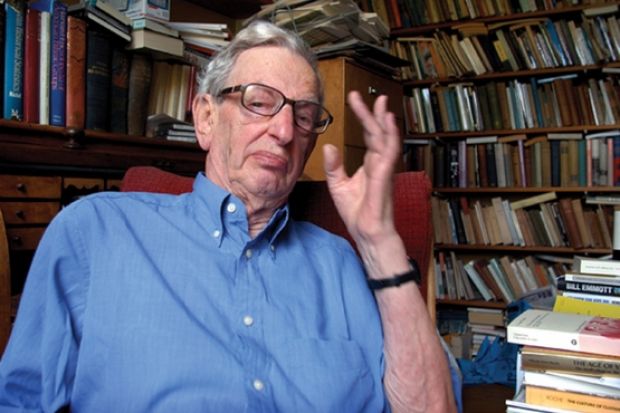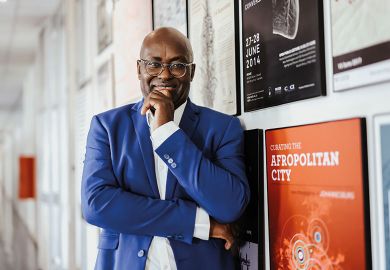John Arnold, head of the department of history, Classics and archaeology at Birkbeck, University of London, welcomed delegates to the History After Hobsbawm conference, held at Senate House on 29 April to 1 May, and reminded them that the eminent academic had always looked to the future and believed in “dream[ing] forward”.
Subsequent speakers and panellists explored how we can draw on and develop his insights into capitalism and class, protest and property, nationalism and tradition. There was also a “learned entertainment” marking Professor Hobsbawm’s life-long passion for jazz.
Opening the event with the first Hobsbawm Memorial Lecture, Mark Mazower – professor of history at Columbia University – argued that the historian’s “omnivorous mind, razor-sharp analytic intellect and keen consciousness of the relationship between a writer and his audience” had “radically enrich[ed]” the discipline and inaugurated a continuing “golden age of historical synthesis”.
Conference convenor Jan Rüger, reader in modern history at Birkbeck, noted that “much of our teaching continues to be structured by the questionable dichotomy between empire and Europe…If we are to attempt to write the British empire into European history or indeed to write European history into the imperial British past, we have few better sources of inspiration to turn to than Eric Hobsbawm’s legacy.
“In his trilogy on the 19th century the two contexts are continuously bound up with one another – there is no clear boundary separating Britain and Europe in the Age of Empire.”
Gareth Stedman Jones, professor of the history of ideas at Queen Mary University of London, turned to the central paradox of Professor Hobsbawm’s career.
A strong commitment to Marxism, he suggested, “generally mixes badly with the writing of good history”, since “ what is produced is too often circumscribed or weighed down by a cluster of dogmatic assumptions about exploitation, the nature of capitalism, the development of class struggle and a determinist approach to culture and politics”.
Yet despite “an untroubled and unapologetic attachment to ‘Marxism’” throughout his life, continued Professor Stedman Jones, Professor Hobsbawm combined it with “unending curiosity” about subjects “ranging from ‘the General Crisis of the Seventeenth Century’ to the rise of professional football in Latin America”.
It was this, together with his “elegant and accessible” style of writing, that had produced a constantly stimulating body of work, which could still be “read for pleasure or enlightenment by anyone from the enquiring sixth former to the grandest of political or cultural luminaries”.
Register to continue
Why register?
- Registration is free and only takes a moment
- Once registered, you can read 3 articles a month
- Sign up for our newsletter
Subscribe
Or subscribe for unlimited access to:
- Unlimited access to news, views, insights & reviews
- Digital editions
- Digital access to THE’s university and college rankings analysis
Already registered or a current subscriber? Login




